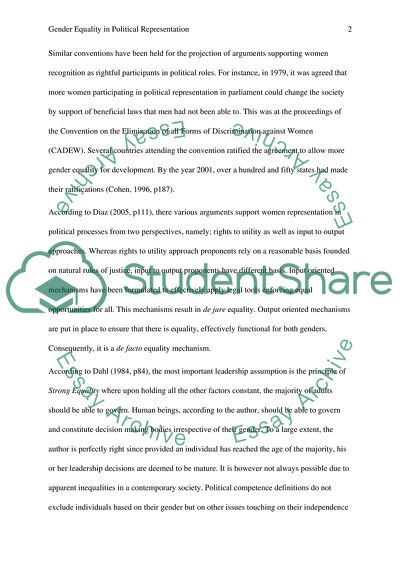Cite this document
(The Concerns of Women Into Account in Policy Developments Research Paper, n.d.)
The Concerns of Women Into Account in Policy Developments Research Paper. Retrieved from https://studentshare.org/politics/1747354-does-gender-equality-in-political-representation-in-national-parliaments-matter
The Concerns of Women Into Account in Policy Developments Research Paper. Retrieved from https://studentshare.org/politics/1747354-does-gender-equality-in-political-representation-in-national-parliaments-matter
(The Concerns of Women Into Account in Policy Developments Research Paper)
The Concerns of Women Into Account in Policy Developments Research Paper. https://studentshare.org/politics/1747354-does-gender-equality-in-political-representation-in-national-parliaments-matter.
The Concerns of Women Into Account in Policy Developments Research Paper. https://studentshare.org/politics/1747354-does-gender-equality-in-political-representation-in-national-parliaments-matter.
“The Concerns of Women Into Account in Policy Developments Research Paper”, n.d. https://studentshare.org/politics/1747354-does-gender-equality-in-political-representation-in-national-parliaments-matter.


